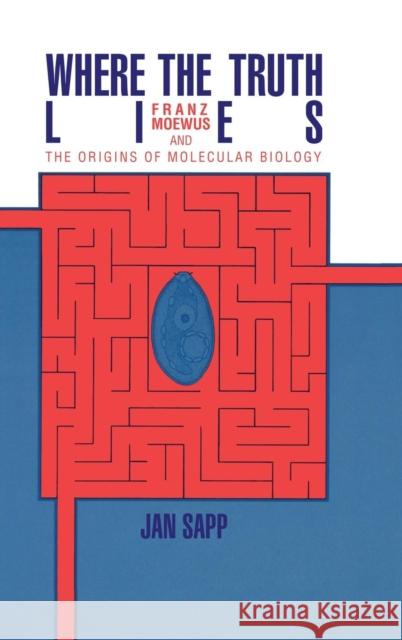Where the Truth Lies: Franz Moewus and the Origins of Molecular Biology » książka
Where the Truth Lies: Franz Moewus and the Origins of Molecular Biology
ISBN-13: 9780521365505 / Angielski / Twarda / 1990 / 352 str.
Where the Truth Lies: Franz Moewus and the Origins of Molecular Biology
ISBN-13: 9780521365505 / Angielski / Twarda / 1990 / 352 str.
(netto: 296,47 VAT: 5%)
Najniższa cena z 30 dni: 308,18
ok. 22 dni roboczych.
Darmowa dostawa!
This absorbing account of a case of suspected fraud involving the tragic career of the molecular biologist Franz Moewus illustrates all that can go wrong in scientific knowledge-making. The author follows Moewus' meteoric flight among the greatest scientists of the twentieth-century, to his denunciation as the perpetrator of one of the most ambitious cases of fraud in the history of science. He discusses the socio-political issues that helped to bring Moewus' work to the center of great scrutiny in the professional biological science community, how the controversy was sustained for decades, and how it came to a close and was eventually expunged from the history of science. The author reopens this case and writes Moewus into the history of modern science, not in an attempt to vindicate him, but to present the methodological lessons that the controversy reveals to both scientists and science analysts. Arguing against the existence of institutionalized rules and of a universal efficacious scientific method, Professor Sapp demonstrates how what counts as evidence is negotiated by science, and he reveals the difficulties scientists face in objectively testing the validity of scientific results. By likening scientists to storytellers, the author emphasizes the creative nature of science, the rhetorical nature of scientific reports, and the fictitious elements inherent in the construction and maintenance of scientific knowledge-making and knowledge-breaking claims. Undergraduate and graduate students and professional researchers in the history and philosophy of science and experimental biology will find this a thought provoking and informative historical account.











